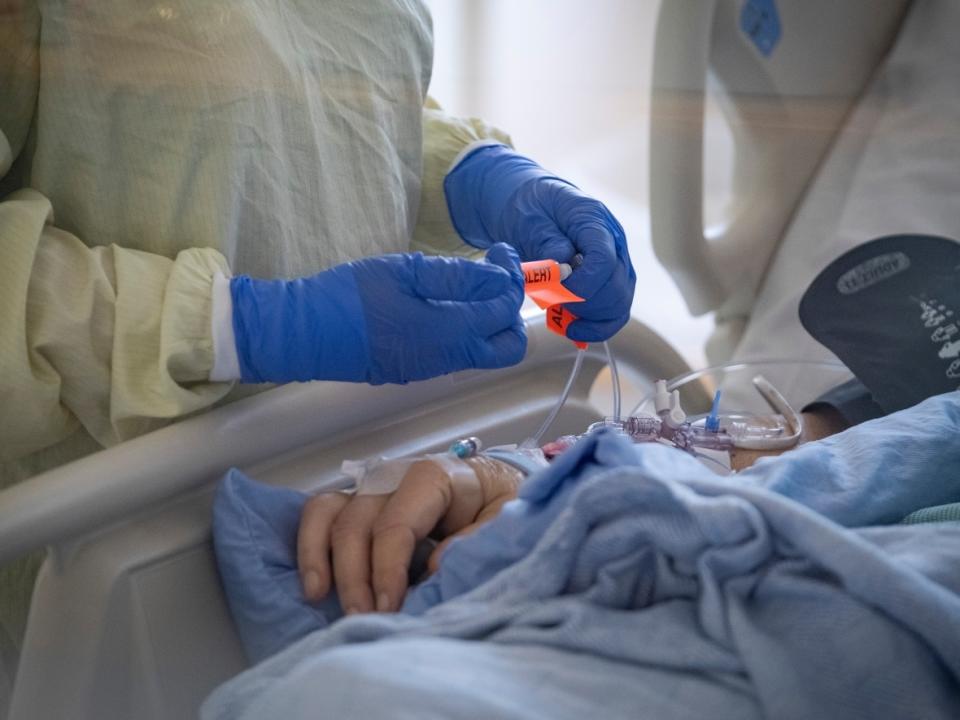Air transfers of ICU patients require collaborative planning and training, says air ambulance director

Six patients from Saskatchewan intensive care units have been airlifted to Ontario this week as the province's health-care system continues to manage the pressure of high COVID-19 case numbers.
STARS Air Ambulance wasn't involved in the six transfers, but their crews know all about moving critically-ill patients.
Tracey Steel, a critical care nurse and director of clinical operations with STARS, says there's always a fear of losing a critically-ill patient when they make a transfer.
"We make sure we have everything we need in the back. We're certainly well trained in that. You know we don't have access to additional support services like you would in the hospital. It's just a different environment, a transport environment versus a critical care unit."
Saskatchewan's Provincial Emergency Operations Centre is still assessing available resources from other provinces, as well as that of the federal government to support the province's ICU needs.
Steel says it takes a lot of preparation to make these transfers happen.
"I think it comes down to appropriate planning. Our crews are very well trained so I wouldn't consider it risky, but there's a lot that goes into it to safely transport patients."
The best way to reduce the need for air transfers is for people to get fully vaccinated.
Planning for the transfers is a collaborative effort between the Ontario critical care command team and medical officials in Saskatchewan. This includes physicians and trained medical officials with expertise in critical care and patient transport.

 Yahoo Movies
Yahoo Movies 